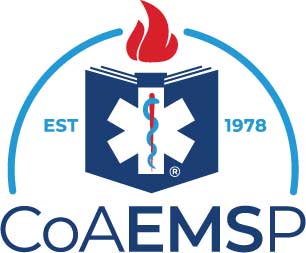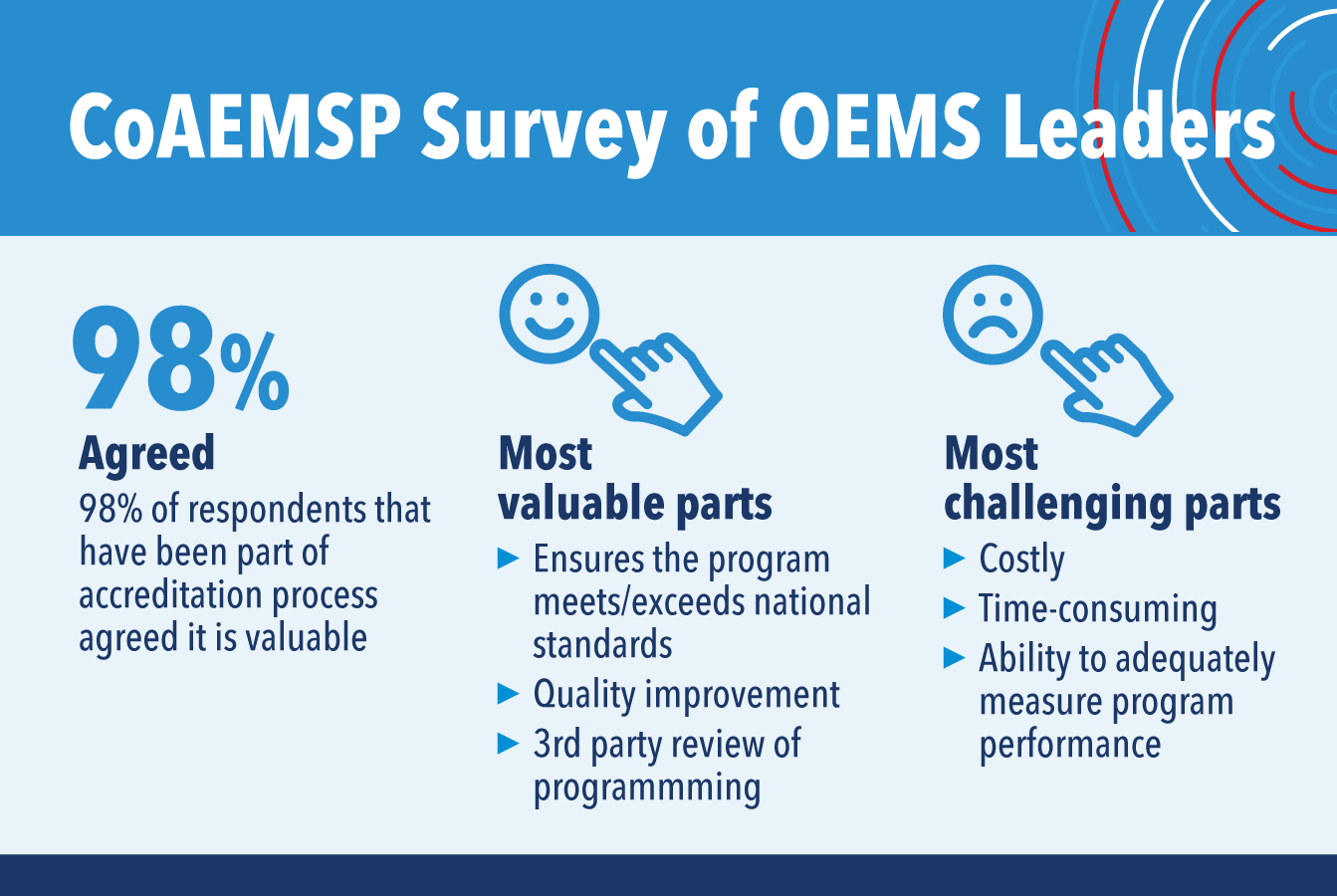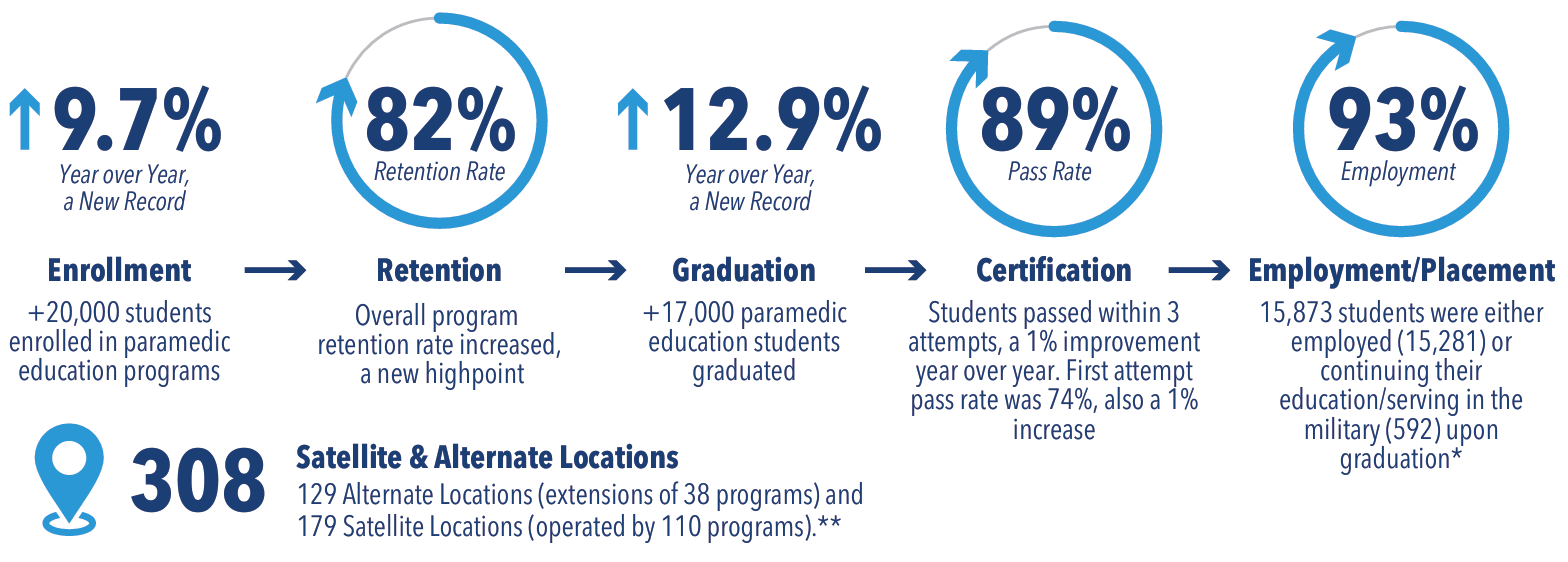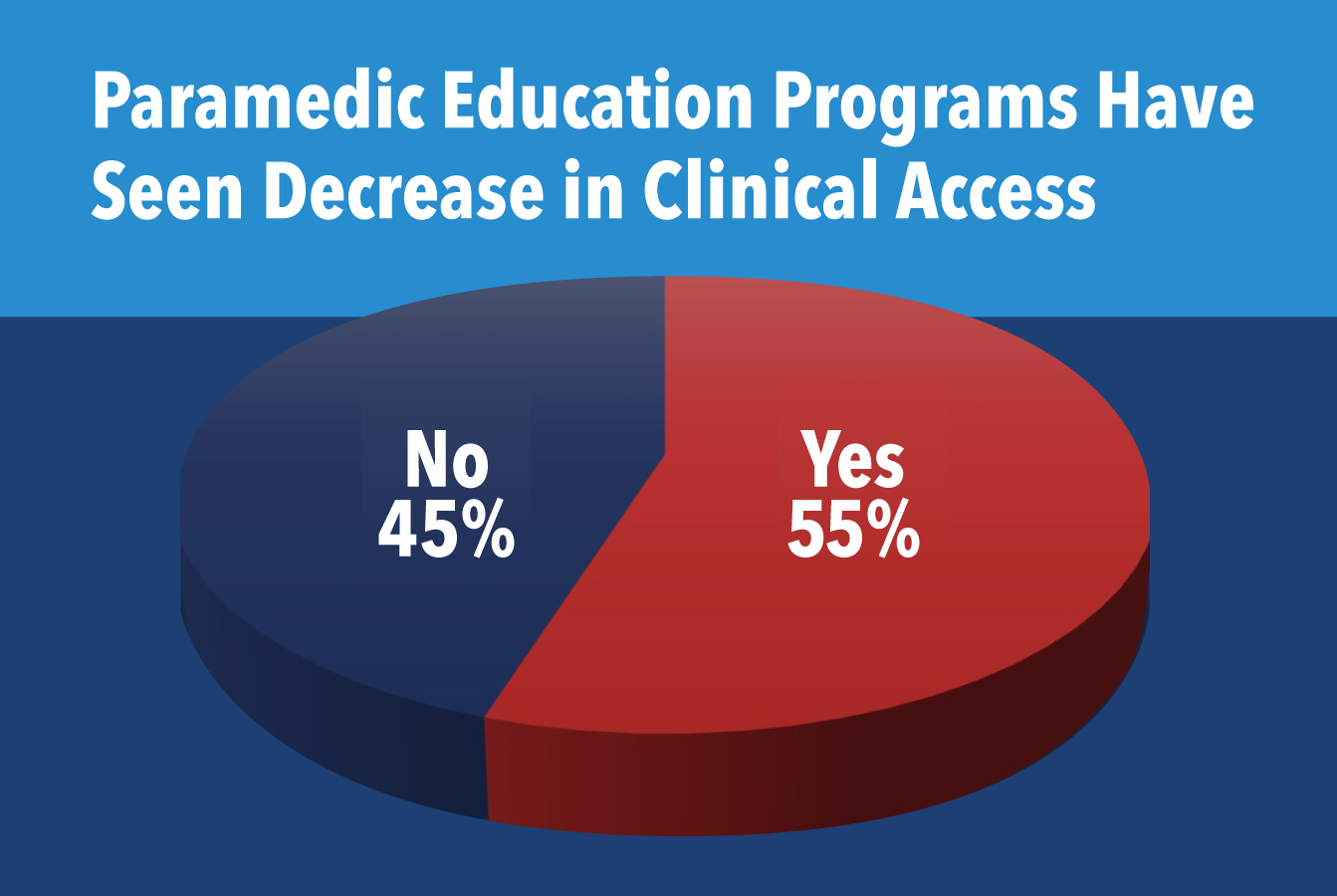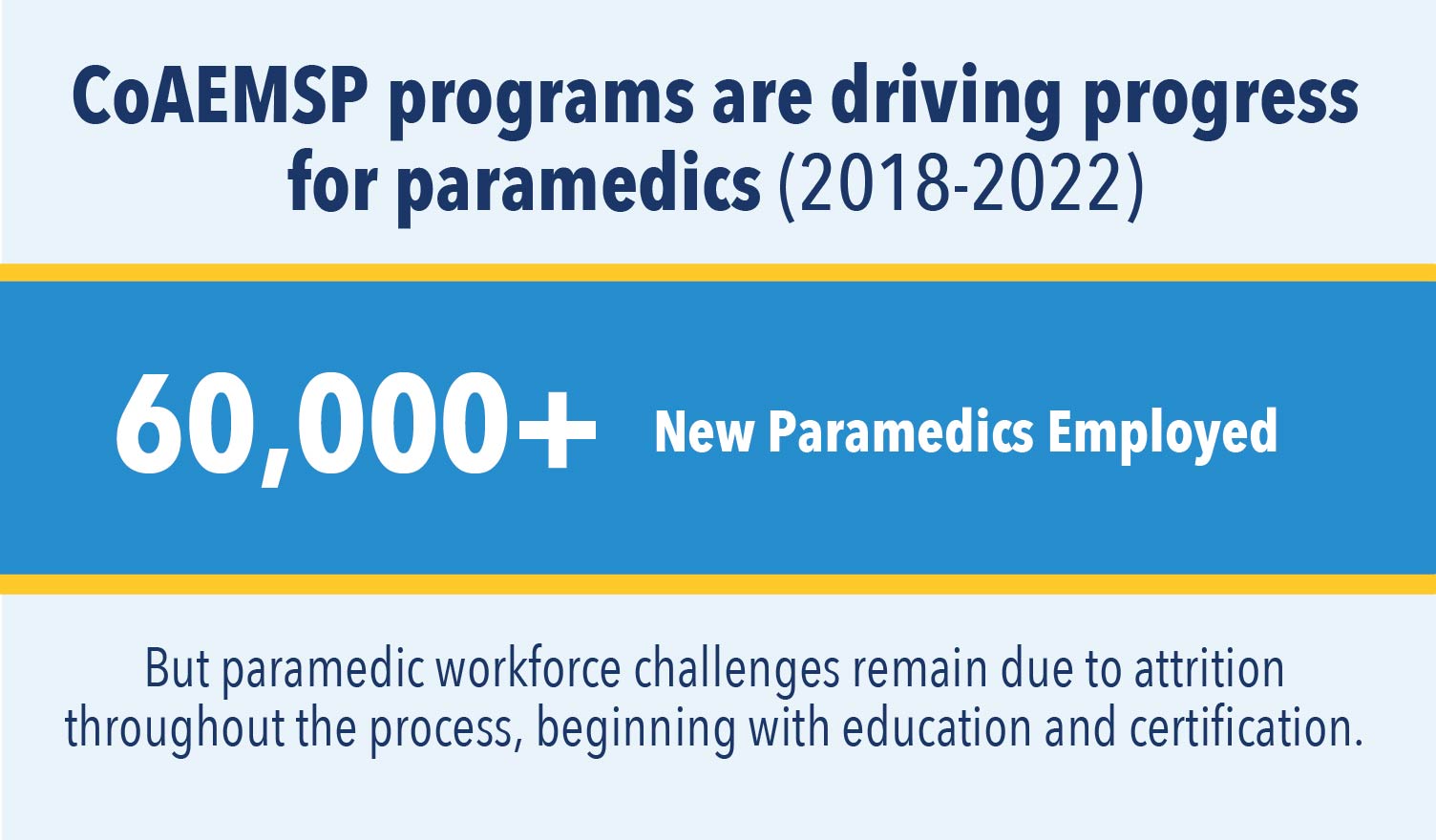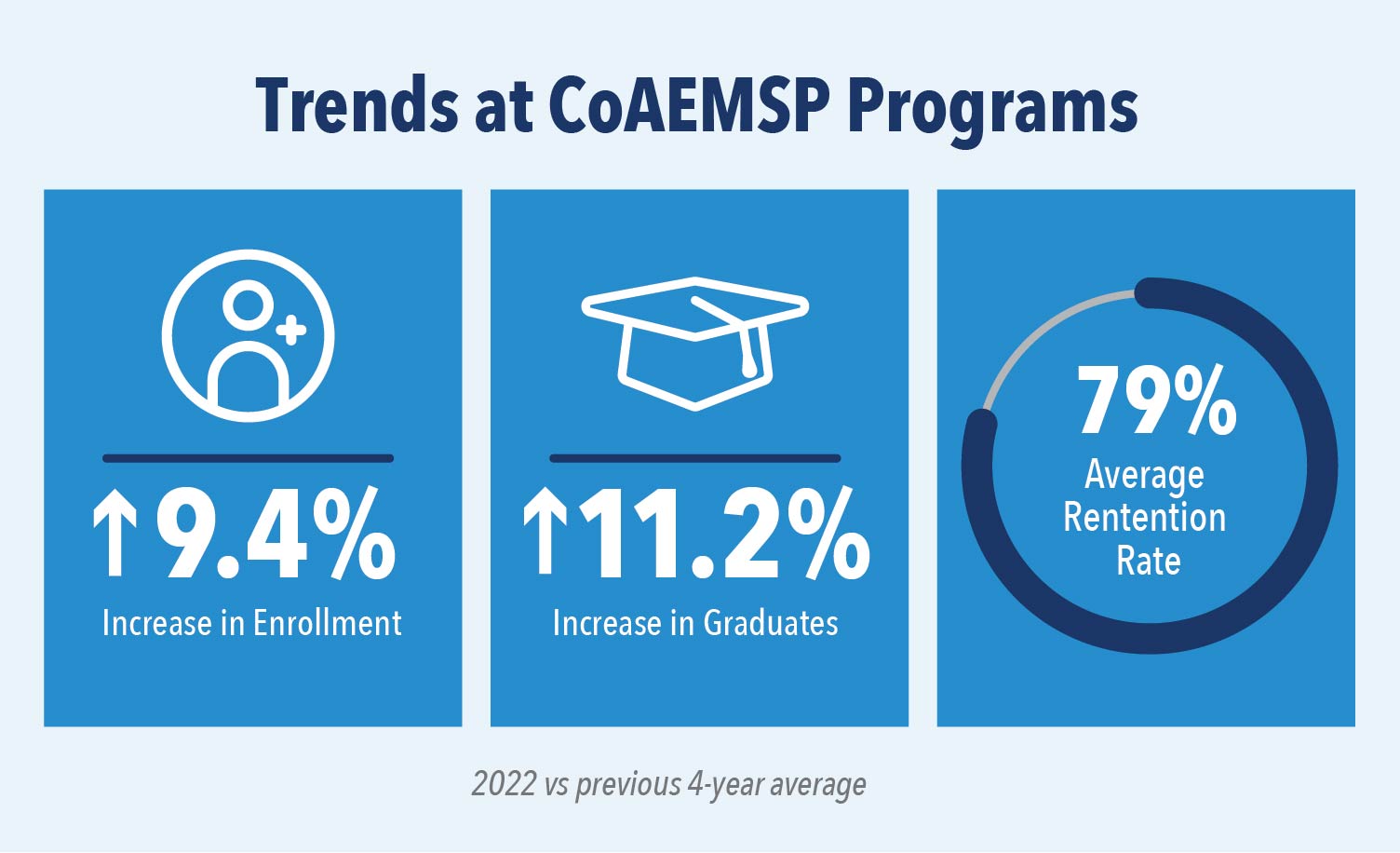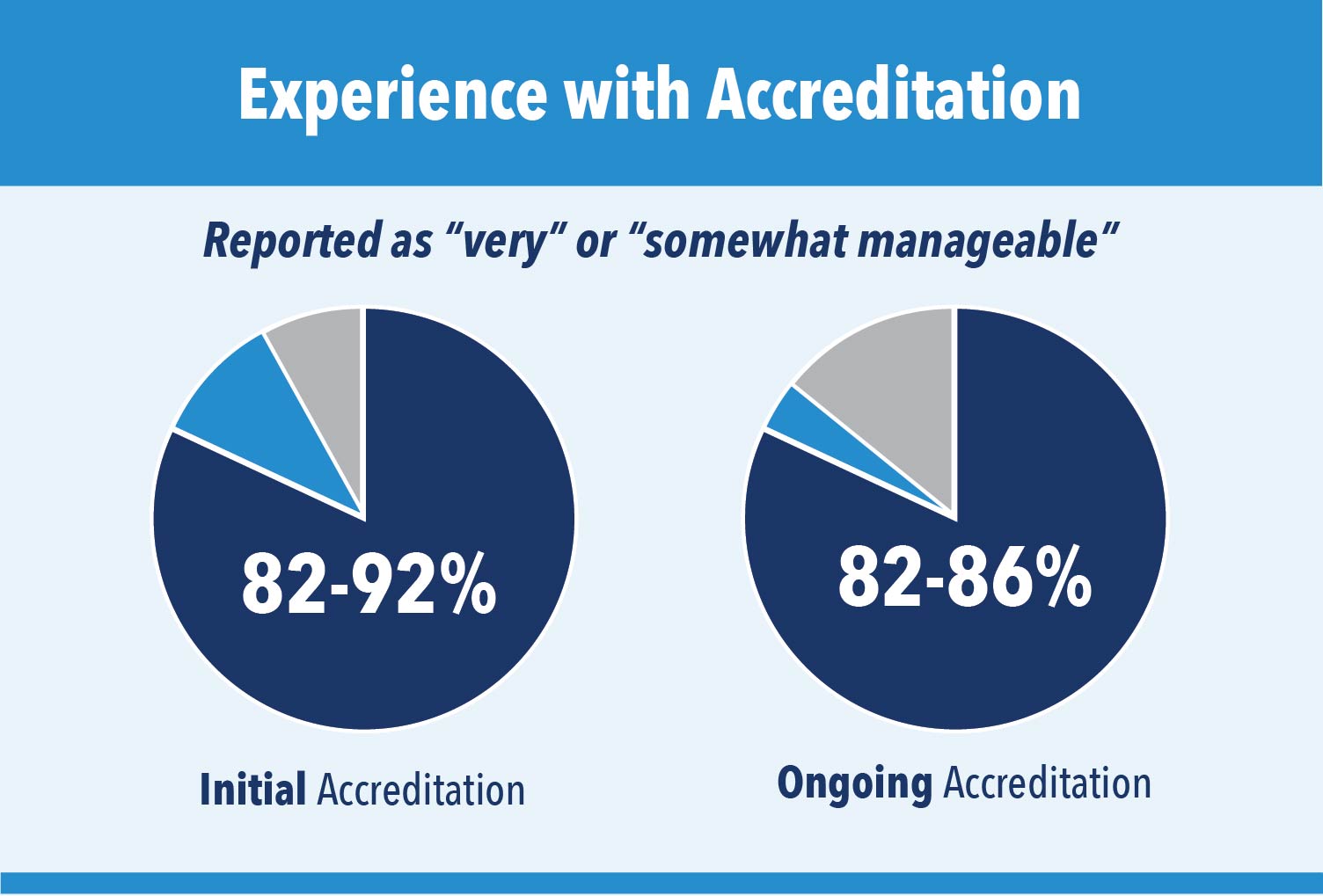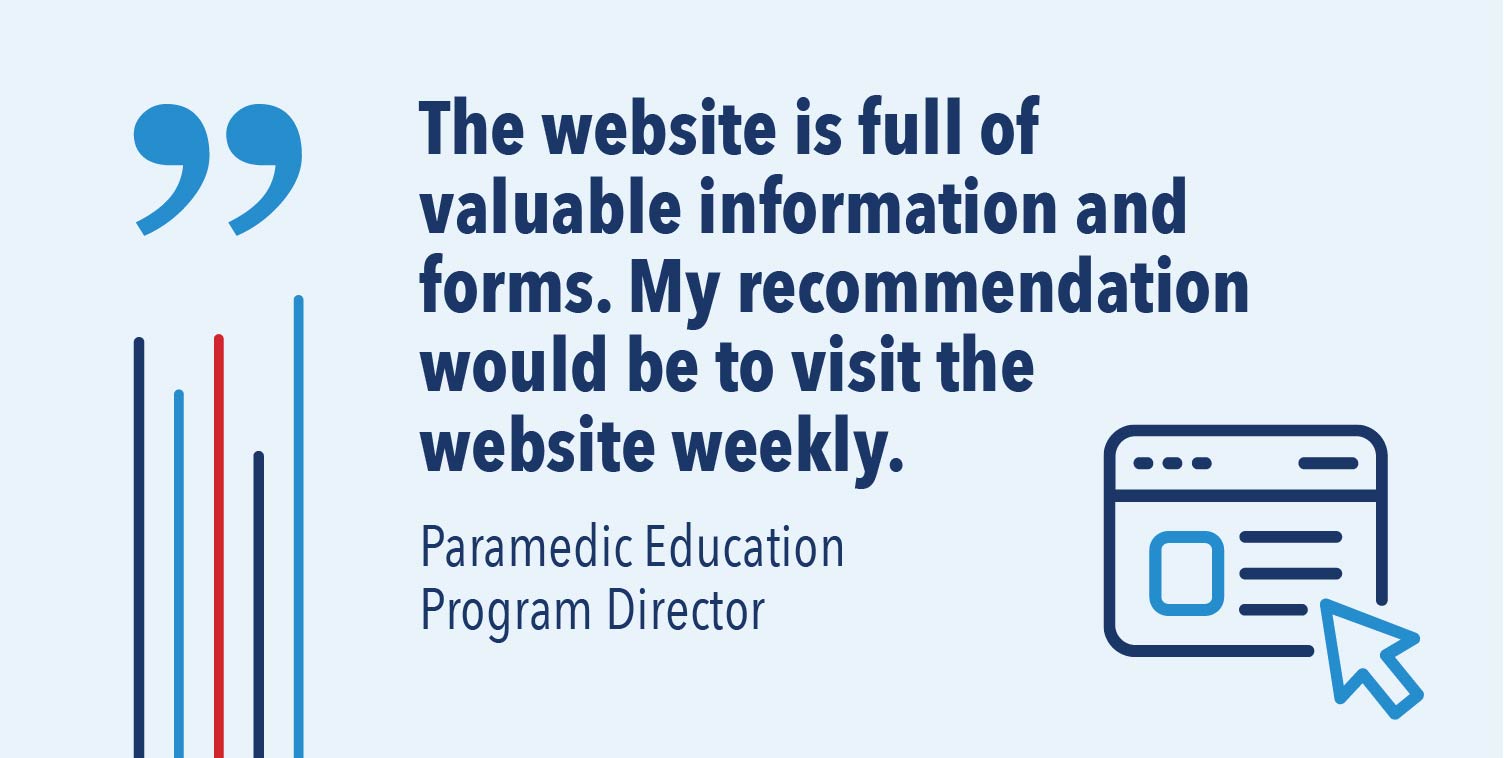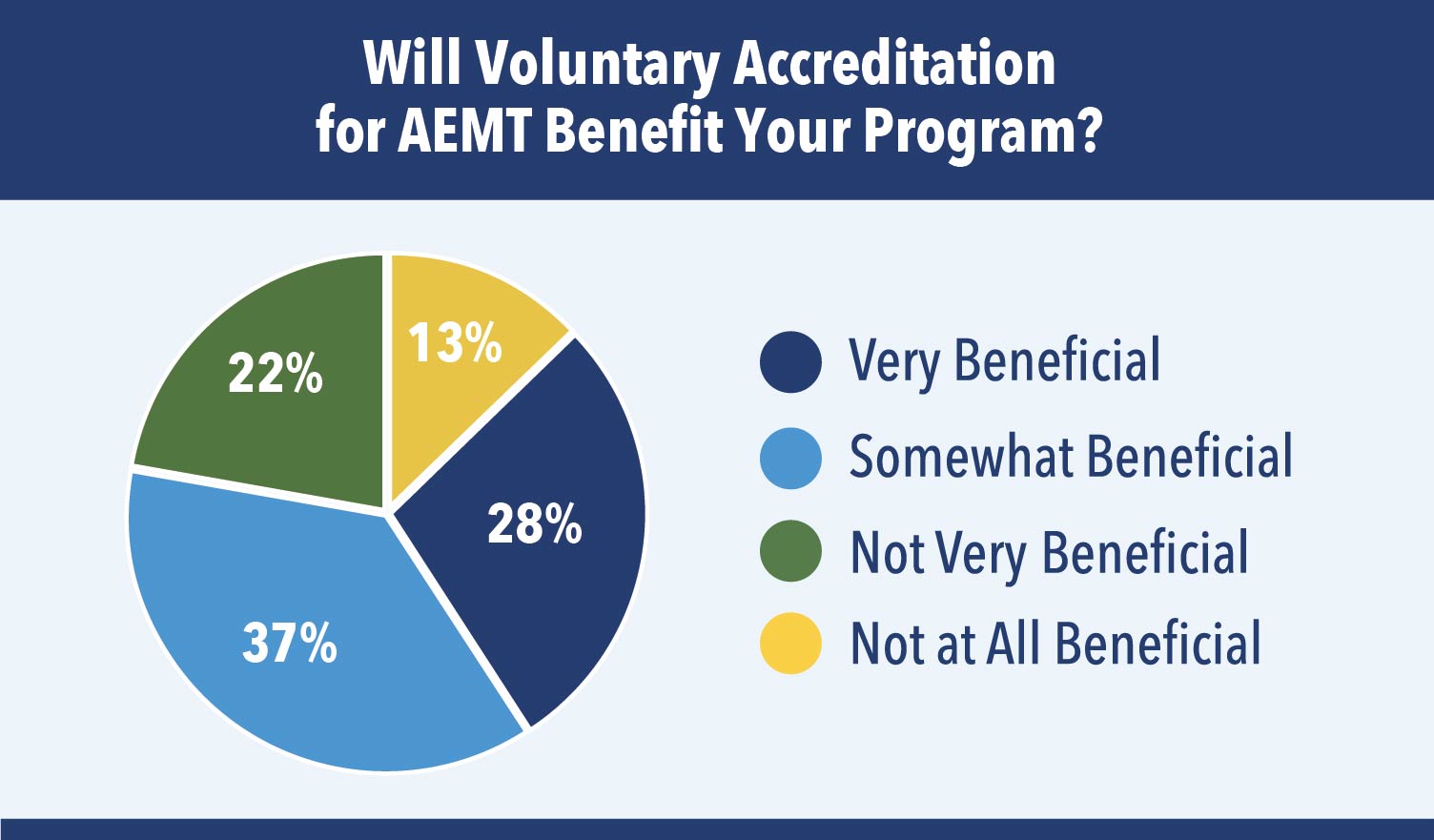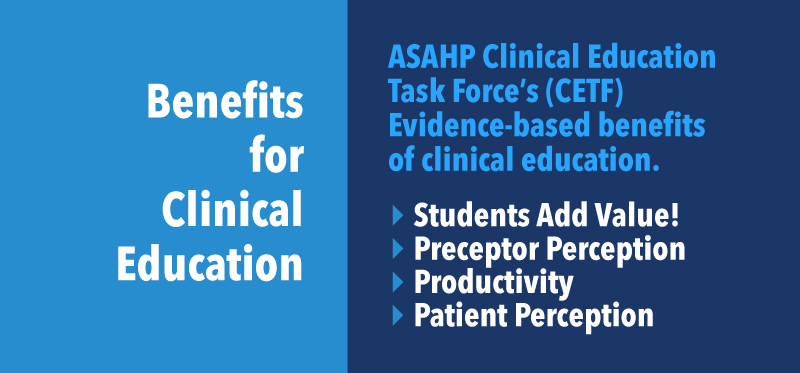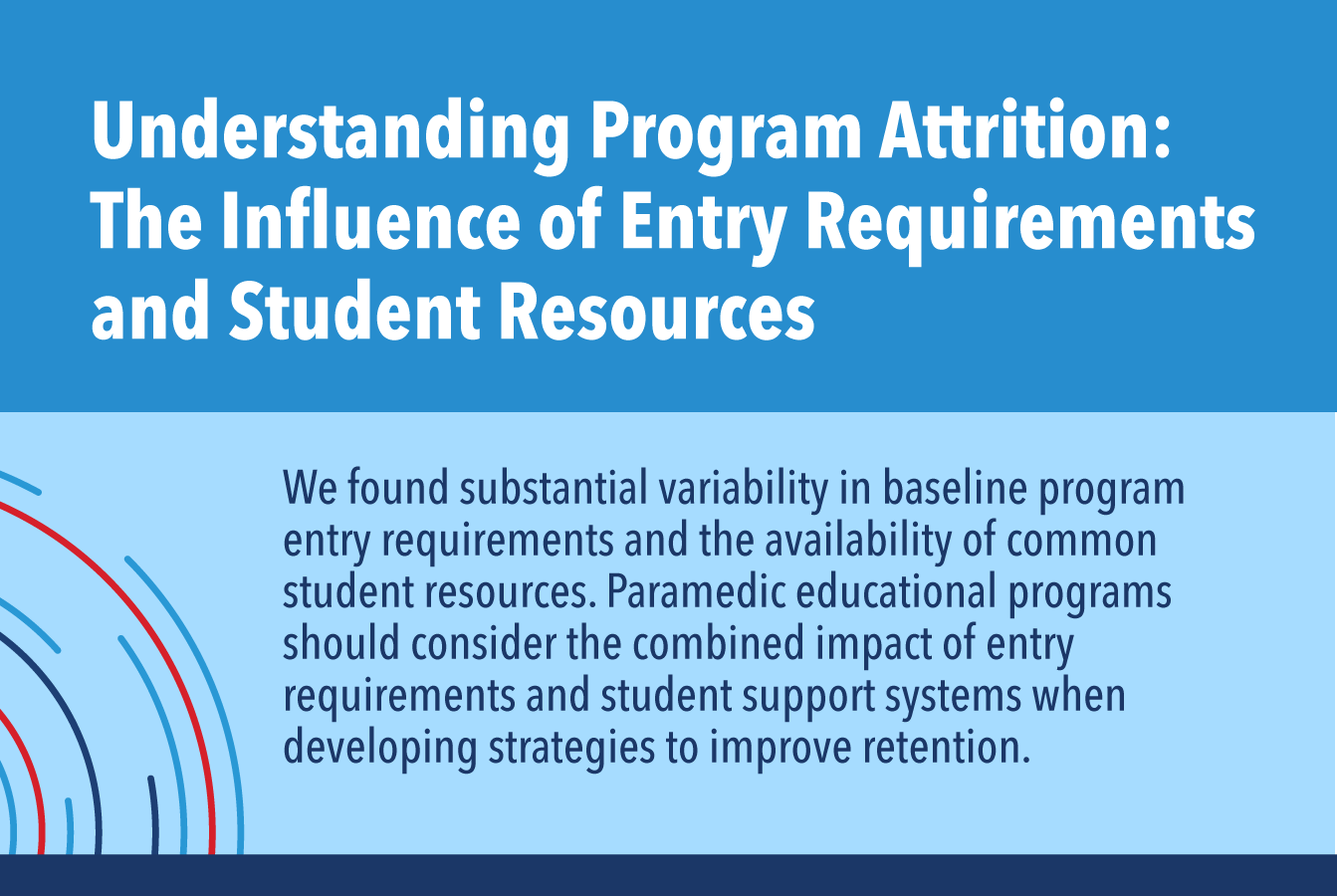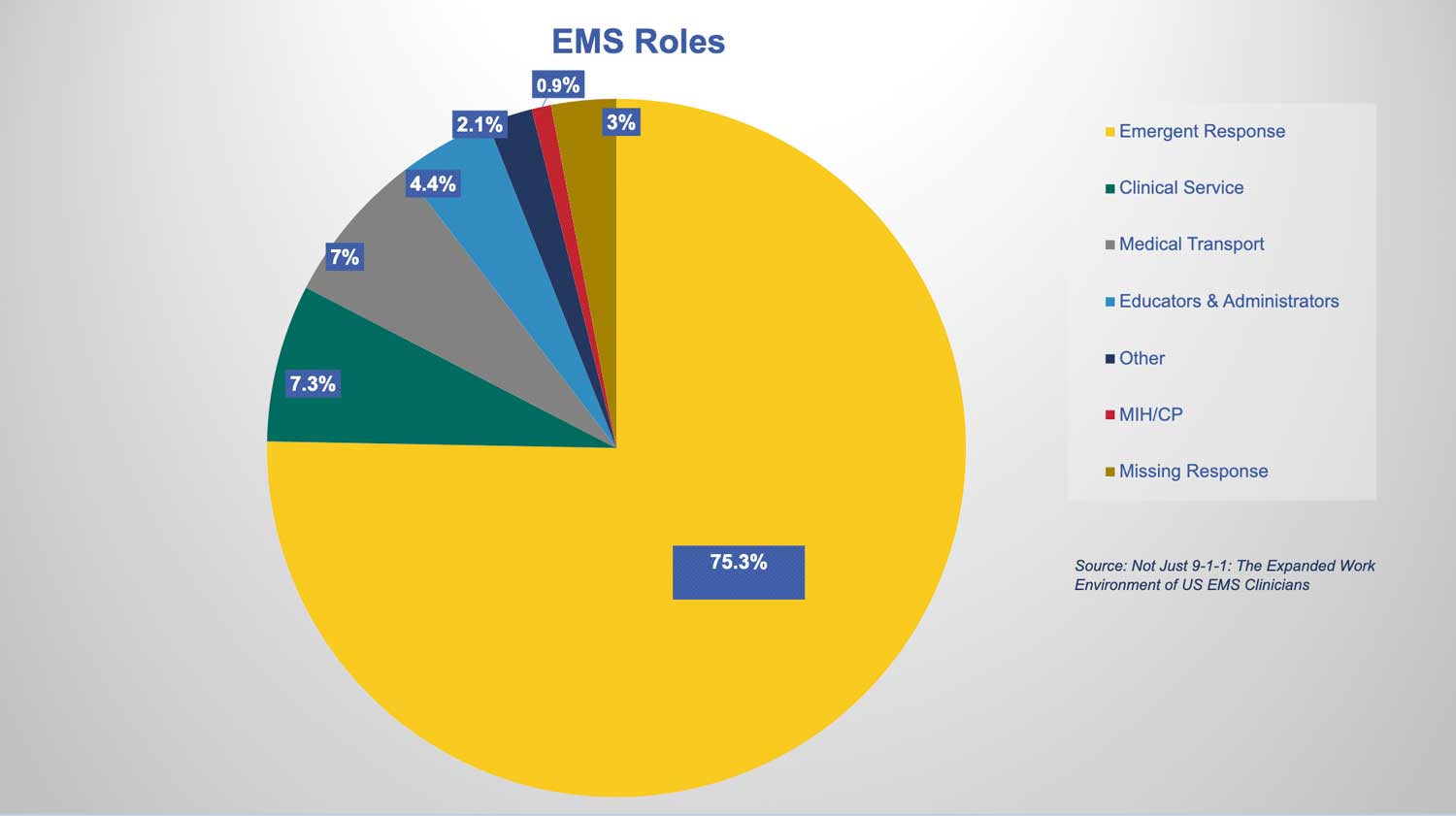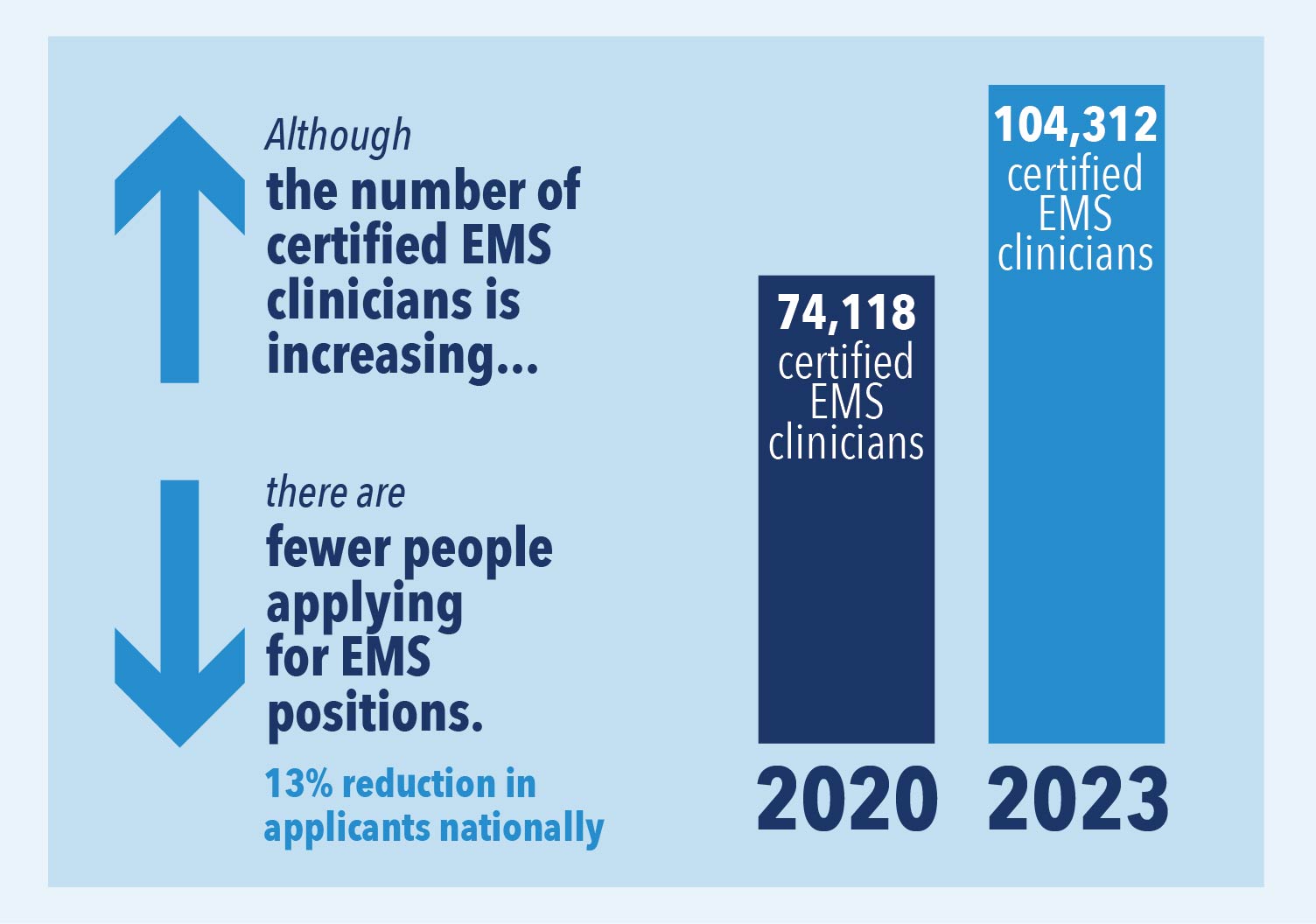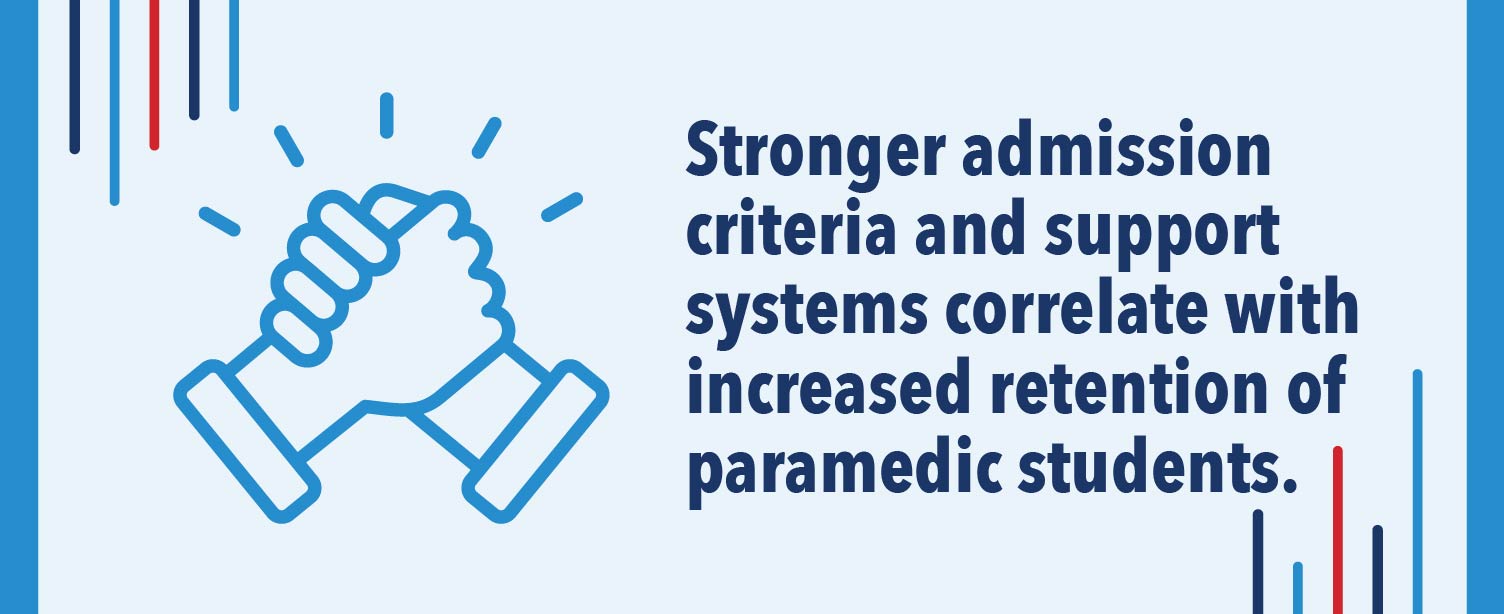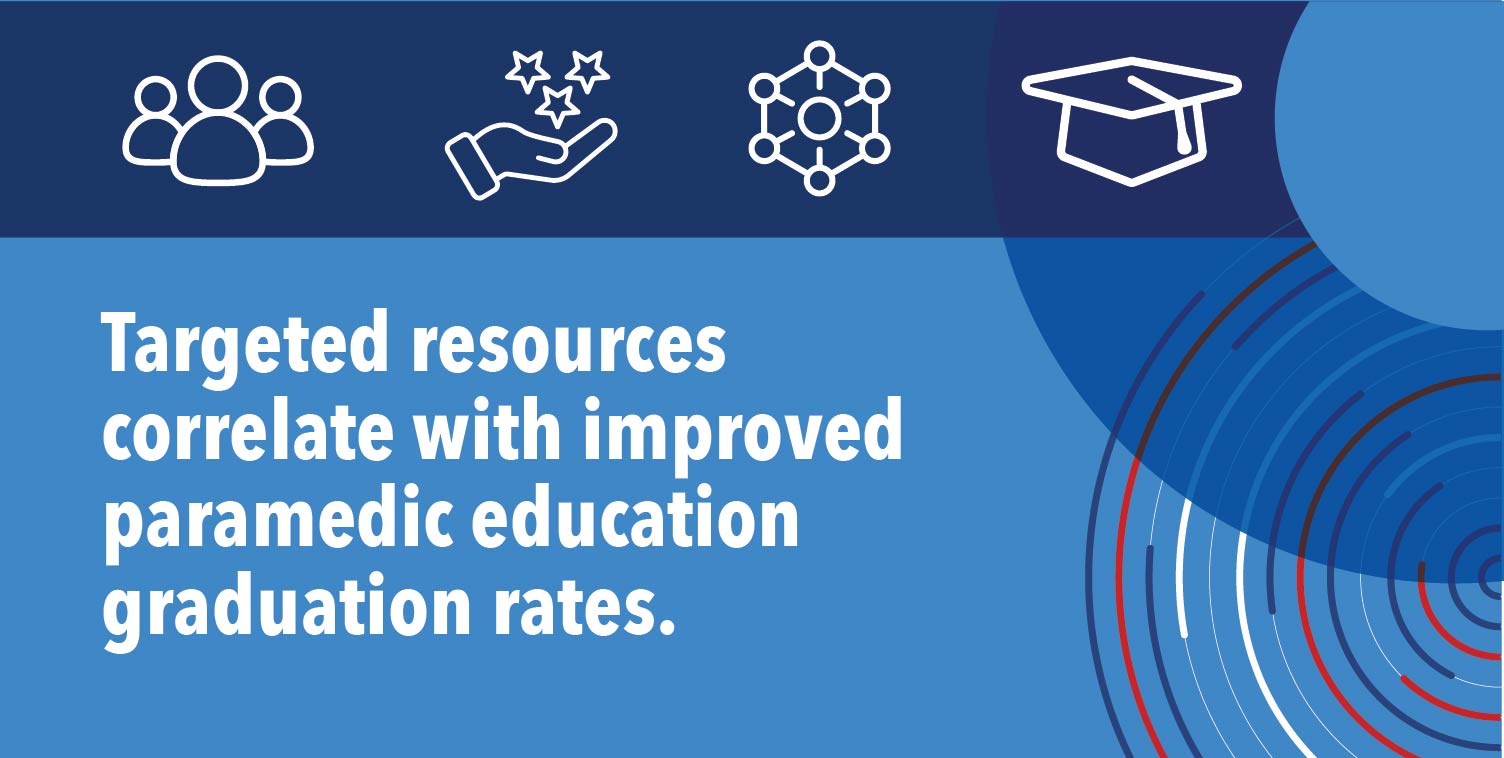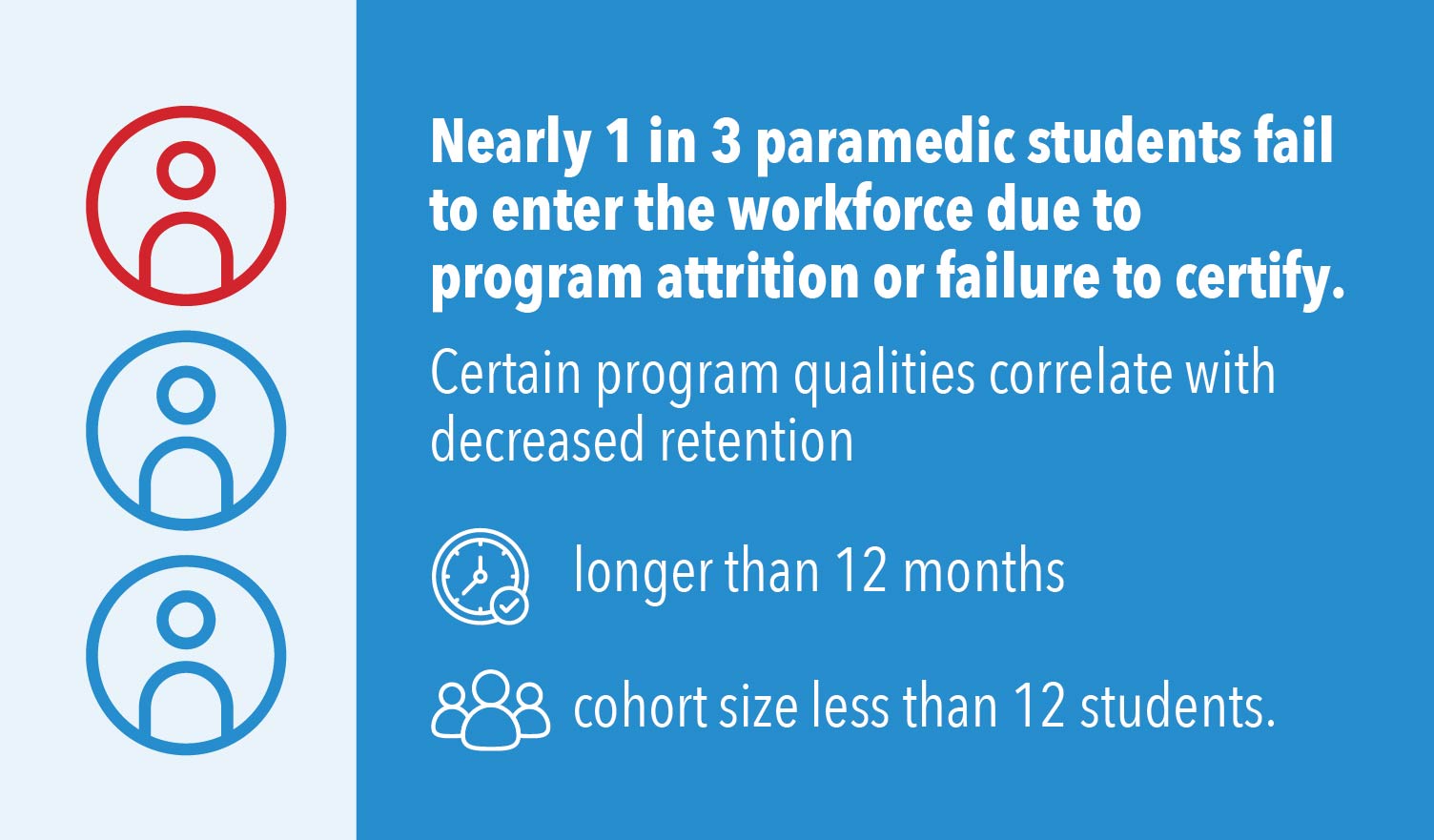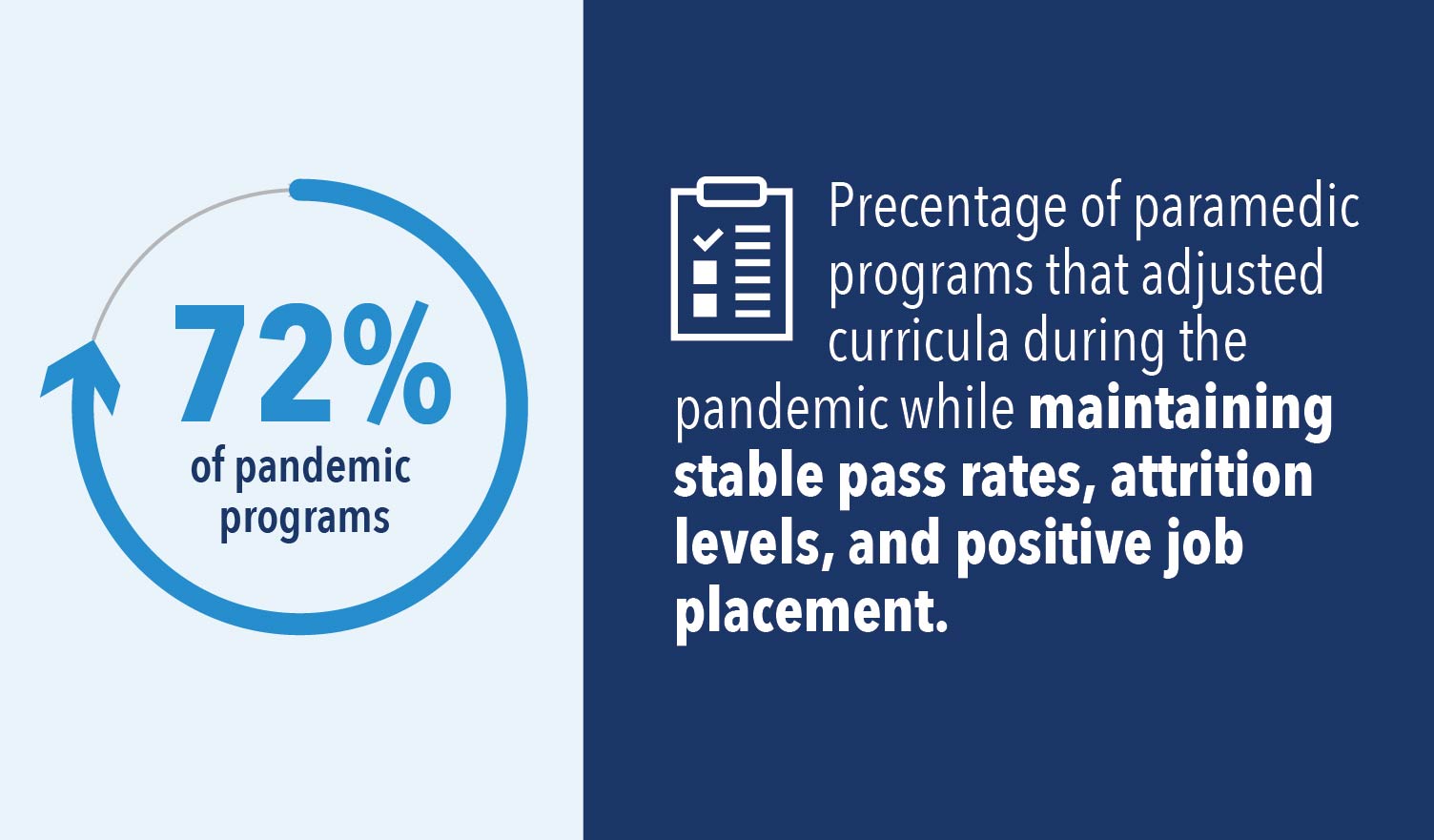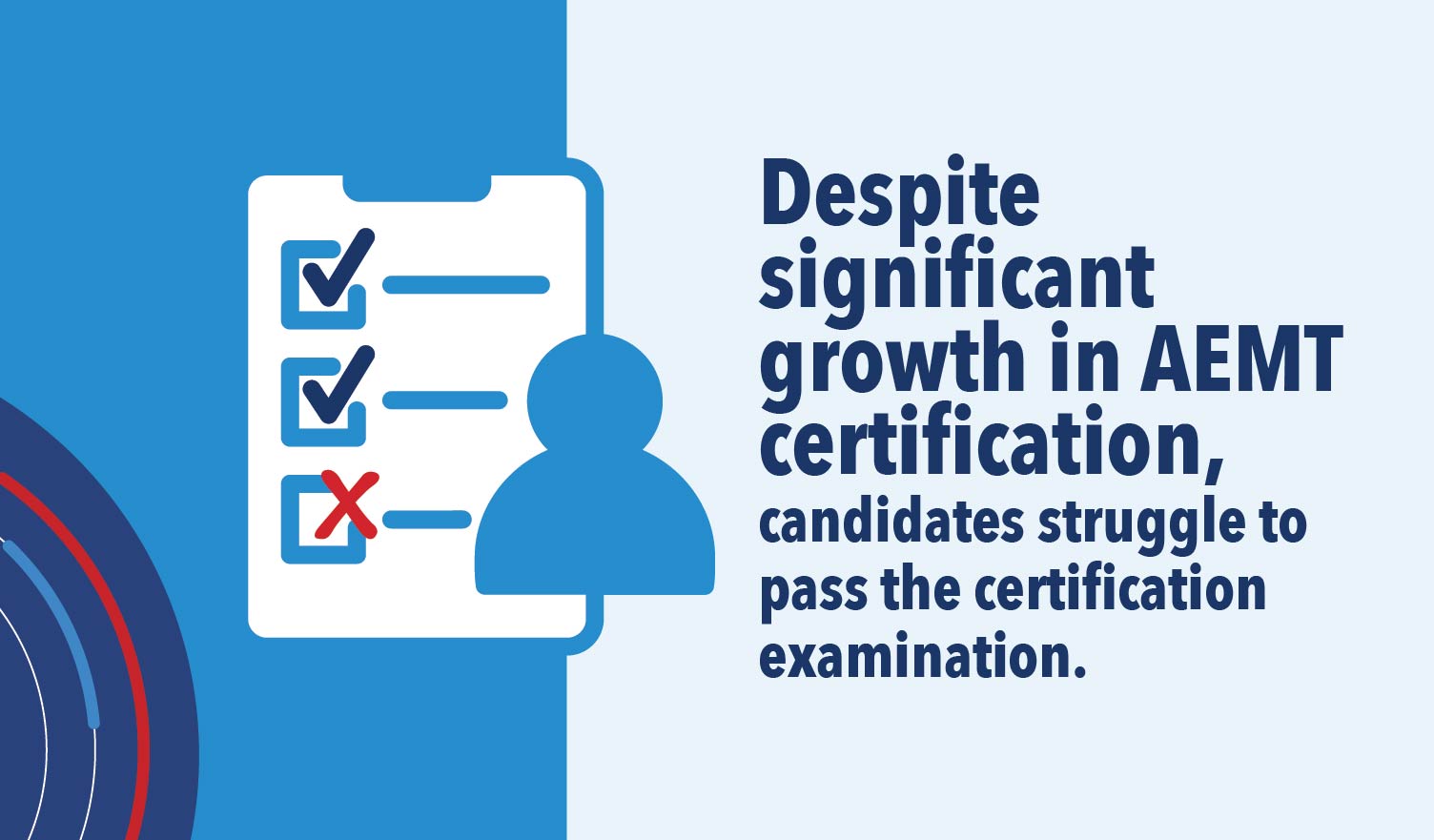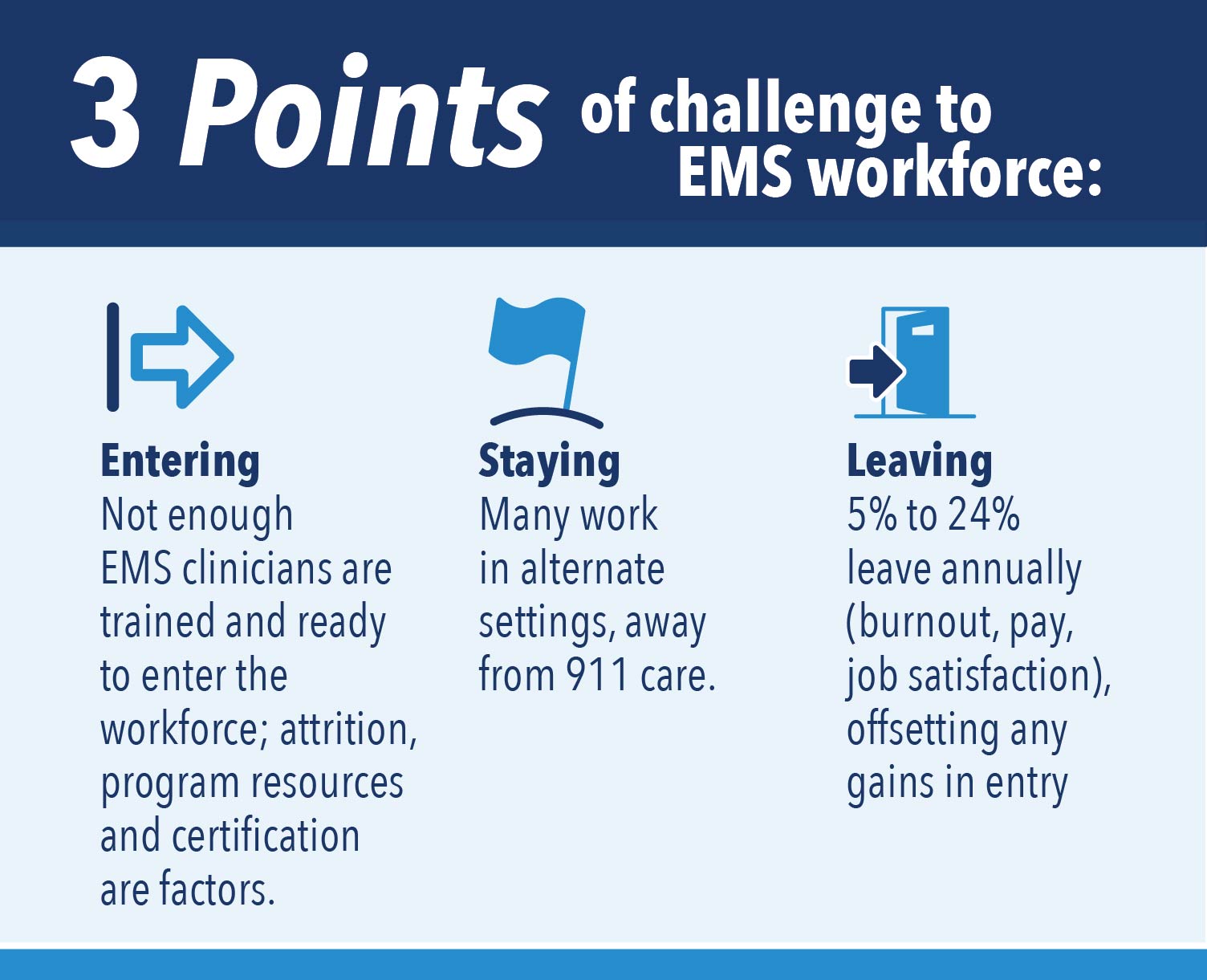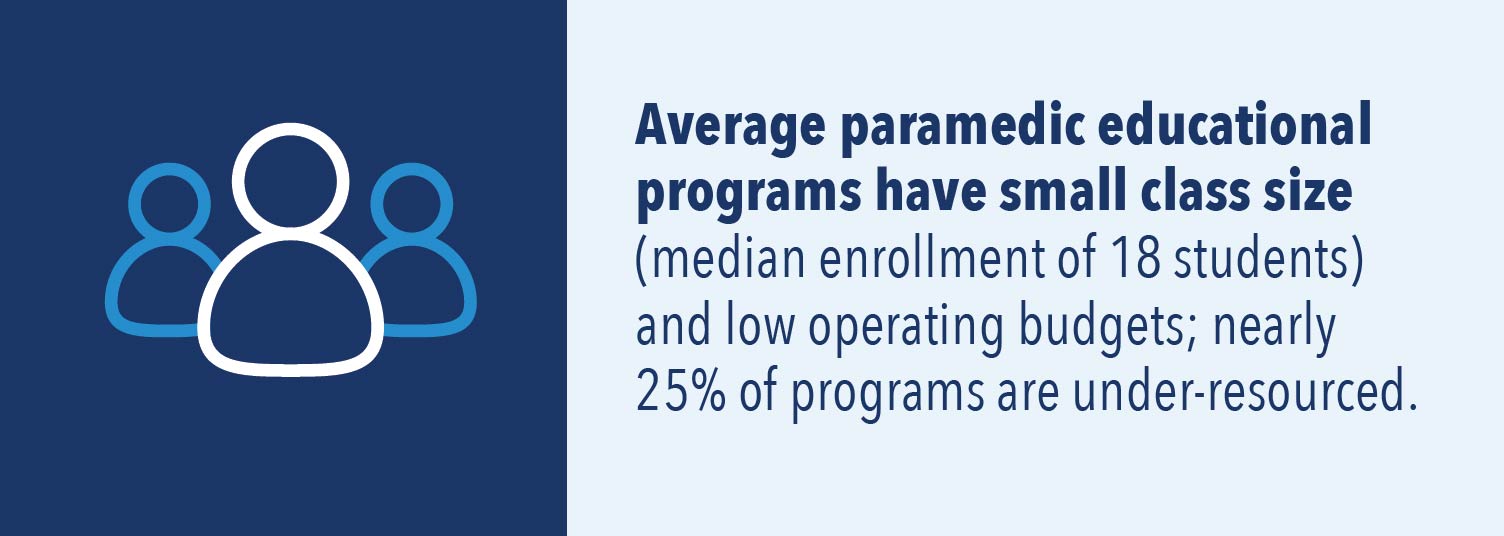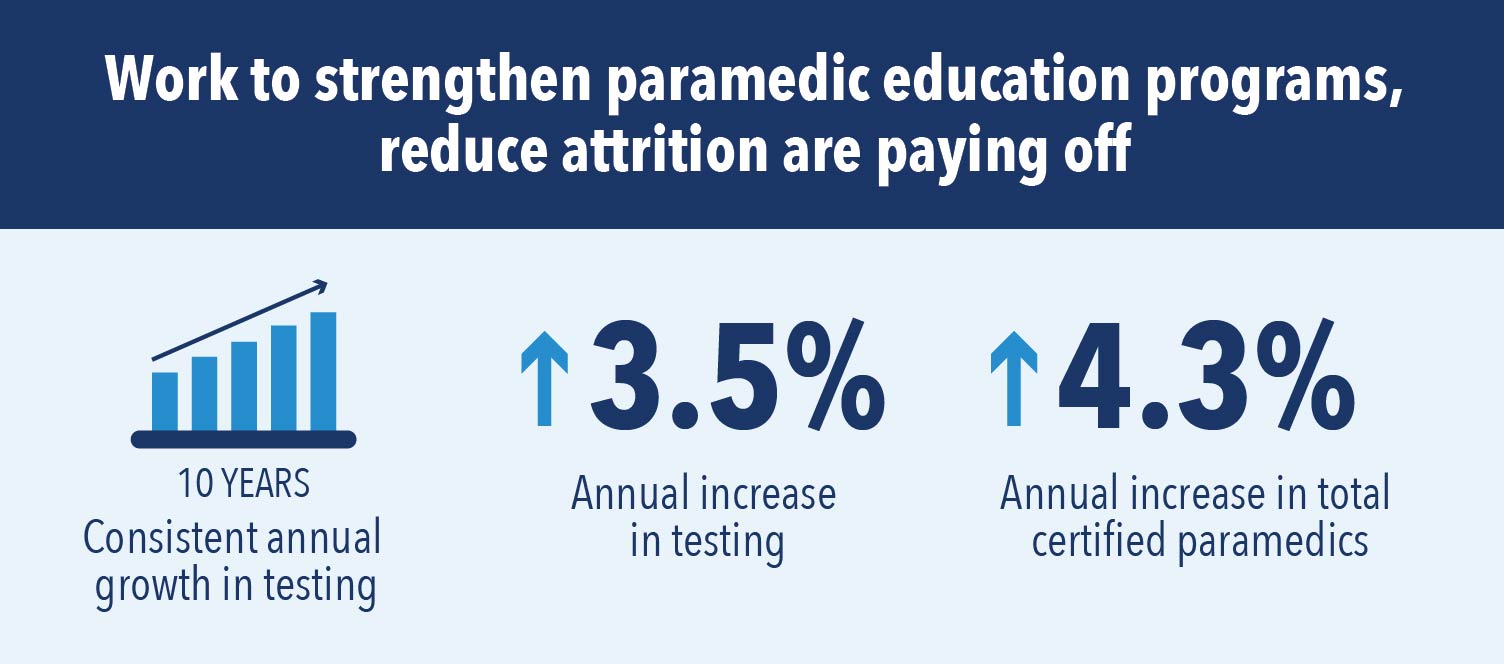
The CoAEMSP encourage the use of quality data sources—including data collected via the annual report, self-study report and site visit report in addition to research conducted by other organizations—to inform and strengthen the EMS profession. Learn more about our data use policy in the CoAEMSP Policies and Procedures Manual, Section XVIII. Data Use Policy.
Research conducted by CoAEMSP on the value of accreditation
Highlights from Office of EMS Survey
Increasing Number of Qualified Paramedics 2023 Program Annual Report Data Sets New Record
Clinical Field Study Full Results
Clinical Field Study Summary
CoAEMSP is Working to Increase the Number of Qualified Paramedics in the Workforce (April 2025)
CoAEMSP program annual report (Oct 2024)
Increased enrollment and graduation among paramedic programs

